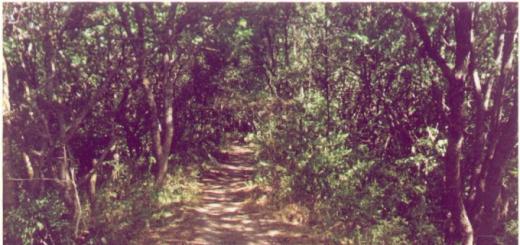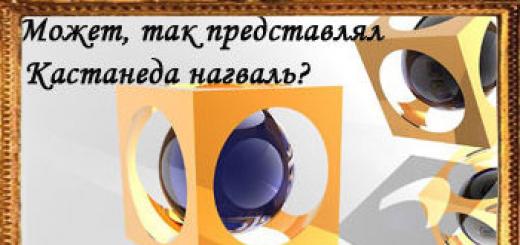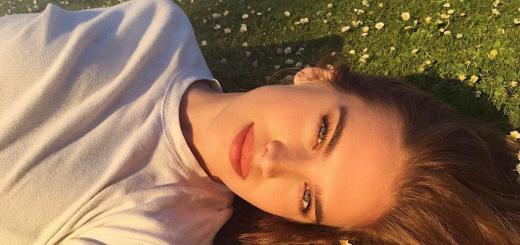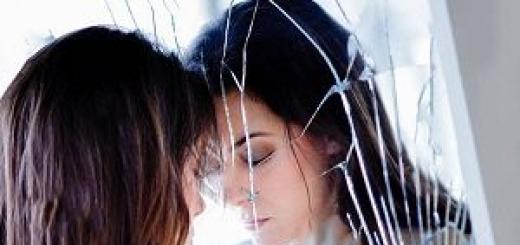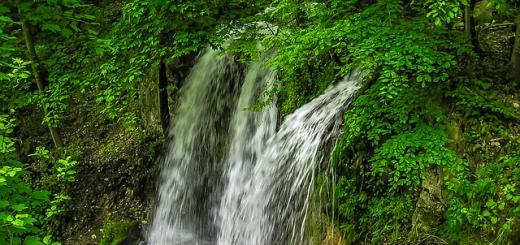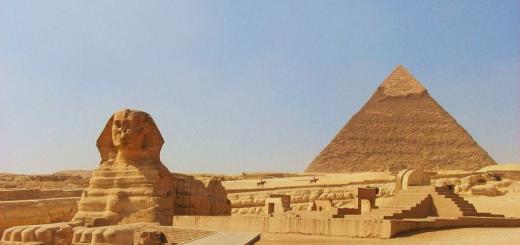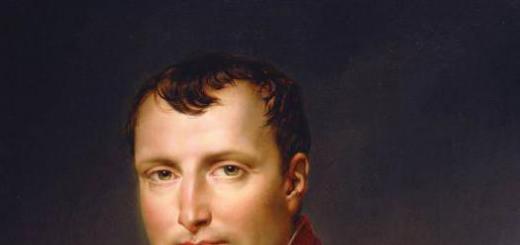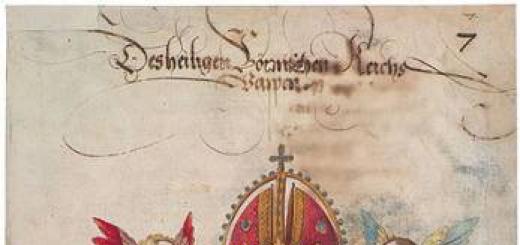Dzhokhar Dudayev was born on February 15, 1944 in the village of Yalkhoroy, Chechen Republic. Eight days after his birth, the Dudayev family was deported to the Pavlodar region of the Republic of Kazakhstan during a mass deportation in February 1944.
After some time, the Dudaevs, along with other deported Caucasians, were transferred to the city of Shymkent, the Republic of Kazakhstan. Dzhokhar studied there until the sixth grade, after which in 1957 the family returned to their homeland and settled in the city of Grozny. In 1959 he graduated high school No. 45, then began working as an electrician in the Construction and Installation Department-5, at the same time he studied in the tenth grade of evening school No. 55, which he graduated a year later.
In 1960 he entered the Faculty of Physics and Mathematics of the North Ossetian Pedagogical Institute. However, after the first course, he left for the city of Tambov, after listening to a year-long course of lectures on profile training, he entered the Tambov Higher Military Aviation School for Pilots named after M.M. Raskova. He graduated from it in 1966. Later he received a diploma from the Air Force Academy named after Yu.A. Gagarin.
Since 1962 has been military service in command positions of combat units of the Air Force. After graduation, in 1966 he was sent to the 52nd Guards Instructor Heavy Bomber Aviation Regiment, to the Shaikovka airfield in the Kaluga Region, as an assistant commander of an airship. In 1968 he joined the Communist Party of the Soviet Union.
Since 1970, he served in the 1225th heavy bomber aviation regiment, the Belaya garrison in the Irkutsk region, the Trans-Baikal Military District, later renamed the 200th Guards Heavy Bomber Aviation Regiment. In subsequent years, he successively held the positions of Deputy Air Regiment Commander, Chief of Staff, Detachment Commander, Regiment Commander.
In 1982, Dudayev was appointed Chief of Staff of the 31st heavy bomber division of the 30th air army. From 1985 to 1989, he served as Chief of Staff of the 13th Guards Heavy Bomber Aviation Division.
From the beginning of 1989 to 1991 he commanded the strategic 326th Ternopil Heavy Bomber Division of the 46th Strategic Air Army in the city of Tartu, the Republic of Estonia. At the same time, he served as the Chief of the military garrison. In 1989 he received the rank of Major General of Aviation.
From November 23 to 25, 1990, the Chechen National Congress was held in the city of Grozny, which elected an Executive Committee headed by Chairman Dzhokhar Dudayev. In March of the following year, Dudayev demanded the self-dissolution of the Supreme Council of the republic. In May, the retired General accepted the offer to return to the Chechen Republic and headed the social movement. In June 1991, at the second session of the Chechen National Congress, Dudayev headed the Executive Committee of the National Congress Chechen people.
In October 1991, presidential elections were held, which were won by Dzhokhar Dudayev. By his first decree, Dudayev proclaimed the independence of the self-proclaimed Chechen Republic of Ichkeria from Russia, which was not recognized by other states. On November 7, the President of Russia issued a decree on the introduction of a state of emergency in the republic, but it was never implemented, since it still existed Soviet Union. In response to this decision, Dudayev introduced martial law on the territory subject to him.
On July 25, 1992, Dudayev spoke at an emergency congress of the Karachay people and condemned Russia for trying to prevent the highlanders from gaining independence. In August the king Saudi Arabia Fahd and Emir of Kuwait Jaber al-Sabah invited Dudayev to visit their countries in his capacity as President of the Chechen Republic. After that, Dudayev made visits to the Turkish Republic of Northern Cyprus and Turkey.
By the beginning of 1993, the economic and military situation on the territory of the Chechen Republic had worsened. In the summer, there were constant armed clashes. The opposition formed the Provisional Council of the Republic headed by U.D. Avturkhanov. On the morning of November 26, 1994, the city of Grozny was shelled and stormed by Russian special services and opposition groups. By the end of the day, the council forces had left the city. After the unsuccessful assault on the city, the opposition could only count on military assistance from the center. Subdivisions of the Ministry of Defense and Internal Affairs of Russia entered the territory of the republic on December 11, 1994. The First Chechen War began.
In 1995, on June 14, a raid by a detachment of militants under the command of Sh. Basayev took place on the city of Budennovsk, Stavropol Territory, accompanied by a massive hostage-taking in the city. After the events in the city, Dudayev awarded orders to the personnel of the Basaev detachment and awarded Basaev the rank of brigadier general.
On April 21, 1996, Russian special services located the signal from Dudayev's satellite phone near the village of Gekhi-Chu. 2 Su-25 attack aircraft with homing missiles were lifted into the air. Presumably, was destroyed by a rocket strike while talking on the phone. The place where Dudayev was buried is unknown.
In 1997, on June 20, in the city of Tartu, a memorial plaque was installed on the building of the Barclay Hotel in memory of the General. Later, a board was opened on house number 6 on Nikitchenko Street in the city of Poltava, Ukraine.
Dzhokhar Dudayev is a very controversial figure in history modern Russia. At the same time, in other countries he is considered a hero.
Carier start
The future rebels were born in the Chechen-Ingush Republic on February 15, 1944. Some time after his birth, his entire family was deported to Kazakhstan, from where they could return to their homeland only in 1957. By 1962, Dudayev lived and worked in Grozny, worked as an electrician. And in 1962 he was called up to serve in the army, where he served until the collapse of the USSR. He rose to the rank of major general of Soviet aviation. Dudayev was a member of the Communist Party and remained in its ranks until it was banned in the Russian Federation. In the army, he was responsible for the political training of recruits.
IN Soviet army
In the period from 1987 to 1989 he took part in the Soviet military operation in Afghanistan and even flew the planes that bombed Afghanistan. Used carpet bombing tactics. When he became the leader of Chechnya, he denied any involvement in the fight against the Afghan Islamists.
Until 1990 he served in Estonia in the city of Tartu as a commander of a military garrison. There is an opinion that Dudayev, during the declaration of independence by Estonia, refused to send troops to Tallinn and block the government buildings and television.
Homecoming
In Chechnya itself, during this period, there was an increase national movement. In 1990, a national congress was held in Chechnya, at which Dudayev was elected head of the Executive Committee. The National Committee of the Chechen People was in opposition to the ruling administration in Grozny. Dudayev demanded the resignation of the entire leadership of the Chechen-Ingush Republic. And when the putsch took place in Moscow on August 19, 1991, he supported Boris Yeltsin, although the Supreme Soviet of the Republic supported the organizers of the coup. This step was the reason for the growth of Dudayev's popularity and increased the confidence of the new authorities in Moscow.
Seizure of power
Dudayev and his associates, whose number was growing rapidly, and who already had weapons in August 1991, first seized television, where he announced that power in the republic would belong to the interim government, and then on September 6 dispersed the Supreme Council. Council deputies were beaten by armed Chechens, and the head of the Grozny City Council, Vitaly Kutsenko, died after being thrown out of a building window. September 6 is considered the Independence Day of the Republic.
Very soon elections were held in Chechnya, Dudayev won with 90% of the vote. By his first decree, he announced the creation of an independent Chechen Republic of Ichkeria. The republic was not recognized by any state that was part of the UN.
Conflict with Moscow
On November 7, 1991, Boris Yeltsin by his decree introduced a state of emergency in the republic. In response, Dudayev's supporters seized all the administrative buildings in Chechnya, and Dudayev put the country into a state of military mobilization. Already at that time, he promised Russia a "mountain of corpses." Chechens were allowed to acquire and keep weapons. In a year, the Chechens were able to seize almost all the weapons of the former Soviet military units located on the territory of Chechnya.
Politics
Dudayev dreamed of creating a Military Union of the Caucasian Republics with the aim of military confrontation with Russia. Chechnya was the first to recognize the independence of Georgia, and Georgia, headed by Zviad Gamsakhurdia, recognized the independence of Chechnya. When Gamsakhurdia lost power in Georgia, he found political asylum in Chechnya. Dudayev tried to have Chechnya recognized by other Muslim countries, but this never happened.
Internal chaos
At the same time, the socio-economic situation in the country worsened, unemployment was almost 80%. Interestingly, the weapons were handed over to the Chechens on the orders of the then Russian Defense Minister Pavel Grachev. Dudayev sought to introduce direct presidential rule in the country, but faced strong opposition. Dudayev dissolved parliament and declared a state of emergency, which led to military clashes between the opposition and Dudayev's supporters.
In fact, the country began Civil War. The opposition created a Provisional Council, which was supported by Moscow. Grozny was attacked several times, and even captured, but the opposition could not hold it.
holy war
In response, Dudayev announced that he was declaring a "holy war on Russia." In November 1993, Yeltsin signed an order to send troops into Chechnya. Thus began the first Chechen war.
Dudaev was hunted by Russian special services. Several attempts were made on him. On April 21, 1996, while Dudayev was on the phone with Russian MP Borov, he was hit by a Russian missile, killing him.
terrorist and hero
In Russia, Dudayev is perceived negatively, however, for example, in Tartu (Estonia) there is a memorial plaque dedicated to Dudayev. In Vilnius, Riga there are streets named after Dudayev. In 2005, Dzhokhar Dudayev Square also appeared in Warsaw.
Translation: Svetlana Tivanova
Dudaev Dzhokhar Musaevich
Major General of Aviation, who led the movement for the secession of Chechnya from the Soviet Union, the first president of Ichkeria (1991-1996), supreme commander during the First Chechen war.
Biography
Dzhokhar Dudayev was born on February 15, 1944 in the village of Yalkhori (Yalkhoroy) of the Chechen-Ingush Autonomous Soviet Socialist Republic. Chechen, a native of the teip Yalkhoroy. was thirteenth youngest child in the family of Musa and Rabiat Dudayev. Johar's father worked as a veterinarian.
On February 23, 1944, the population of the CHIASSR was subjected to repressions and was deported to Kazakhstan and Central Asia. Dzhokhar Dudayev and his family were able to return to Chechnya only in 1957.
Dudayev graduated from the Tambov Military Aviation School and the Yu.A. Gagarin Air Force Academy in Moscow.
Military career
In 1962 he began serving in the Soviet Army. He rose to the rank of Major General of the USSR Air Force (Dudaev was the first Chechen general in the Soviet Army). He took part in military operations in Afghanistan in 1979-1989. In 1987-1990 he was commander of a heavy bomber division in Tartu (Estonia).
In 1968 he joined the CPSU and did not formally leave the party.
In the autumn of 1990, being the head of the garrison in the city of Tartu, Dzhokhar Dudayev refused to follow the order: to block television and the Estonian parliament. However, this act had no consequences for him.
Political activity
Until 1991, Dudayev visited Chechnya on short trips, but he was remembered at home. In 1990, Zelimkhan Yandarbiev convinced Dzhokhar Dudayev of the need to return to Chechnya and lead the national movement. In March 1991 (according to other sources - in May 1990), Dudayev retired and returned to Grozny. In June 1991, Dzhokhar Dudayev headed the Executive Committee of the National Congress of the Chechen People (OKCHN). According to the BBC, Boris Yeltsin's adviser Gennady Burbulis subsequently claimed that Dzhokhar Dudayev assured him of his loyalty to Moscow in person.
In early September 1991, Dudayev led a rally in Grozny, demanding the dissolution of the Supreme Soviet of the Chechen Republic of the Autonomous Soviet Socialist Republic due to the fact that on August 19 the leadership of the CPSU in Grozny supported the actions of the USSR State Emergency Committee. On September 6, 1991, a group of armed supporters of the OKChN, led by Dzhokhar Dudayev and Yaragi Mamadaev, broke into the building of the Supreme Council of Checheno-Ingushetia and forced the deputies to stop their activities at gunpoint.
On October 1, 1991, by decision of the Supreme Council of the RSFSR, the Chechen-Ingush Republic was divided into the Chechen and Ingush Republics (without borders).
On October 10, 1991, the Supreme Soviet of the RSFSR, in a resolution "On political position in Checheno-Ingushetia" condemned the seizure of power in the republic by the OKCHN Executive Committee and the dispersal of the Supreme Council of Checheno-Ingushetia.
President of Ichkeria
On October 27, 1991, Dzhokhar Dudayev was elected President of the Chechen Republic of Ichkeria (ChRI). Even after becoming the president of Ichkeria, he continued to appear in public in a Soviet military uniform.
On November 1, 1991, by his first decree, Dudayev proclaimed the independence of the CRI from Russian Federation, which was not recognized by either the Russian authorities or any foreign states.
On November 7, 1991, Russian President Boris Yeltsin issued a decree declaring a state of emergency in Checheno-Ingushetia. In response to this, Dudayev introduced martial law on its territory. The Supreme Soviet of Russia, where Yeltsin's opponents held most of the seats, did not approve the presidential decree.
At the end of November 1991, Dzhokhar Dudayev created the National Guard, in mid-December he allowed the free carrying of weapons, and in 1992 he created the Ministry of Defense.
On March 3, 1992, Dudayev announced that Chechnya would sit down at the negotiating table with the Russian leadership only if Moscow recognized its independence, thus leading possible negotiations to a dead end.
On March 12, 1992, the Chechen Parliament adopted the Constitution of the Republic, declaring the Chechen Republic an independent secular state. The Chechen authorities, meeting almost no organized resistance, seized the weapons of the Russian military units stationed on the territory of Chechnya.
In August 1992, at the invitation of King Aravin Fahd bin Abdel Aziz of Saudi Arabia and Emir of Kuwait Jabar el Ahded ak-Sabah, Dzhokhar Dudayev visited these countries. He was given a warm welcome, but his request to recognize the independence of Chechnya was denied.
On April 17, 1993, Dudayev dissolved the Cabinet of Ministers of the Chechen Republic, the Parliament, the Constitutional Court of Chechnya and the Grozny City Assembly, introduced direct presidential rule and a curfew throughout Chechnya
In November 1994, formations loyal to Dudayev successfully suppressed the armed uprising of the pro-Russian Chechen opposition. The column of tanks and infantry fighting vehicles that entered Grozny, partially manned by Russian contractors, was defeated.
On December 1, 1994, a decree of the President of the Russian Federation "On certain measures to strengthen law and order in the North Caucasus" was issued, which ordered all persons illegally possessing weapons to voluntarily surrender them to the law enforcement agencies of Russia by December 15.
On December 6, 1994, in the Ingush village of Sleptsovskaya, Dzhokhar Dudayev met with Russian Defense Minister Pavel Grachev and Interior Minister Viktor Yerin.
First Chechen War
December 11, 1994, on the basis of the decree of the President of the Russian Federation Boris Yeltsin "On measures to suppress the activities of illegal armed groups on the territory of the Chechen Republic and in the zone of the Ossetian-Ingush conflict," units of the Ministry of Defense and the Ministry of Internal Affairs of Russia entered the territory of Chechnya. The first Chechen war began.
According to Russian sources, by the beginning of the first Chechen campaign under the command of Dudayev there were about 15 thousand fighters, 42 tanks, 66 infantry fighting vehicles and armored personnel carriers, 123 guns, 40 anti-aircraft systems, 260 training aircraft, so the advance of the federal forces was accompanied by serious resistance from the Chechen militias and Dudayev's guards.
By the beginning of February 1995, after heavy bloody battles, Russian army established control over the city of Grozny and began to advance into the southern regions of Chechnya. Dudayev had to hide in the southern mountainous regions, constantly changing his location.
Assassination and death
According to media reports, the Russian special services twice managed to introduce their agents into Dzhokhar Dudayev's entourage and mine his car once, but all assassination attempts ended in failure.
On the night of April 22, near the village of Gekhi-Chu, Dzhokhar Dudayev was killed. According to one of the versions, when D. Dudayev got in touch with the deputy of the State Duma of the Russian Federation K.N.
According to the Constitution of Ichkeria, Vice President Zelimkhan Yandarbiev became Dudayev's successor as president.
Family status
Dzhokhar Dudayev was married and had three children (daughter and two sons). Wife - Alla Fedorovna Dudaeva, daughter of a Soviet officer - artist, poetess (literary pseudonym - Aldest), publicist. Author of the books "One Million First: Dzhokhar Dudayev" (2002) and "Chechen Wolf: My Life with Dzhokhar Dudayev" (2005), co-author of the collection "The Ballad of Jihad" (2003).
Memory of Dzhokhar Dudayev
In a number of cities in Latvia, Lithuania, Poland and Ukraine, streets and squares are named after Dzhokhar Dudayev.
Notes
- According to the testimony of Dzhokhar's wife, Alla Dudayeva, her husband was born in 1943, and the exact date of birth is unknown, since all documents were lost due to deportation, "and there were so many children that no one remembered exactly who was born when" (Ch. 2): Dudaeva A.F. Million first. M.: Ultra. Culture, 2005.
- Dudaeva A.F. Million first. M.: Ultra. Culture, 2005. Ch. 2.
- Obituary: Dzhokhar Dudayev / Tony Barber // Independent, 04/25/1996.
- Europe Since 1945: An Encyclopedia / edited by Bernard A. Cook. Routledge, 2014. P. 322.
- Kort M. The Handbook of the Former Soviet Union. Twenty-First Century Books, 1997; Chronicle of the armed conflict. Comp. A.V. Cherkasov and O.P. Orlov. M.: HRC "Memorial".
- Chronicle of the armed conflict. Comp. A.V. Cherkasov and O.P. Orlov. M.: HRC "Memorial".
Publicity helps solve problems. Send a message, photo and video to the "Caucasian Knot" via instant messengers
Photos and videos for publication must be sent via Telegram, while choosing the "Send file" function instead of "Send photo" or "Send video". Telegram and WhatsApp channels are more secure for information transfer than regular SMS. The buttons work when installed applications Telegram and whatsapp. Number for Telegram and WhatsApp +49 1577 2317856.
Self-proclaimed Chechen Republic of Ichkeria (-). In the USSR - Major General of Aviation. Generalissimo CRI (1996) .
The youngest, thirteenth child of Musa and Rabiat Dudayev, he had three brothers and three sisters and four brothers and two half-sisters (children of his father from a previous marriage). The father was a veterinarian.
The exact date of birth is unknown: during the deportation, all documents were lost, and due to a large number children's parents could not remember all the dates (Alla Dudayeva in her book " Million one: Dzhokhar Dudayev” writes that the year of birth of Dzhokhar could be 1943, not 1944). Dzhokhar belonged to the taip Tsechoy. His mother Rabiat was a native of the Nashkhoy taip, from Khaibakh. Eight days after his birth, the Dudayev family was deported to the Pavlodar region of the Kazakh SSR during the mass deportation of Chechens and Ingush in February 1944.
The opposition press wrote that Dudayev was born on April 15, 1944 in the village of Pervomaiskoye, Pervomaisky district, Grozny region. Thus, the Dudayev family was not deported, which may be explained by the fact that Dudayev's father worked closely with the NKVD.
According to the Russian political scientist Sergei Kurginyan, in exile, the Dudayev family adopted the Viskhadzhi vird (a religious brotherhood established by Vis-Khadzhi Zagiev) of the Kadyrian wing of Sufi Islam.
When Dzhokhar was six years old, Musa died, which had a strong impact on his personality: his brothers and sisters studied poorly, often skipped school, while Dzhokhar studied well and was even elected head of the class.
After some time, the Dudaevs, along with other deported Caucasians, were transferred to Shymkent, where Dzhokhar studied until the sixth grade, after which, in 1957, the family returned to their homeland and settled in Grozny. In 1959 he graduated from secondary school No. 45, then began working as an electrician in SMU-5, at the same time he studied in the 10th grade of evening school No. 55, which he graduated a year later. In 1960, he entered the Faculty of Physics and Mathematics, but after the first year, secretly from his mother, he left for Tambov, where, after listening to a year-long course of lectures on specialized training, he entered (-1966) (since Chechens were then tacitly equated with enemies of the people, then with upon admission, Dzhokhar had to lie that he was Ossetian, however, while receiving a diploma with honors, he insisted that his real origin be entered in his personal file).
According to the memoirs of Galina Starovoitova, in January 1991, during Boris Yeltsin's visit to Tallinn, Dudayev provided Yeltsin with his car, in which Yeltsin returned from Tallinn to Leningrad.
On June 20, 1997, a memorial plaque was erected in Tartu on the building of the Barclay Hotel in memory of Dudayev.
In March 1991, Dudayev demanded the self-dissolution of the Supreme Council of the Chechen-Ingush Republic. In May, the retired general accepts an offer to return to Checheno-Ingushetia and lead the growing social movement. On June 8, 1991, at the second session of the Chechen National Congress, Dudaev was elected chairman of the Executive Committee of the OKChN (National Congress of the Chechen People), into which the former executive committee of the Chechen People was transformed. The session proclaimed the Chechen Republic (Nokhchi-cho). From that moment, Dudayev, as the head of the Executive Committee of the OKChN, began the formation of parallel authorities in the Chechen-Ingush Autonomous Soviet Socialist Republic, stating that the deputies of the Supreme Council of the Chechen-Ingush Autonomous Soviet Socialist Republic "did not justify trust" and declaring them "usurpers".
“On September 5, before the democratic elections are held, power in the republic passes into the hands of the executive committee and other general democratic organizations”On October 27, 1991, presidential elections were held in the Chechen part of Checheno-Ingushetia, which were won by Dzhokhar Dudayev, who received 90.1% of the vote. With his first decree, Dudayev proclaimed the independence of the self-proclaimed Chechen Republic (Nokhchi-cho) (ChRN) from the RSFSR and the USSR, which was not recognized by either the allied or Russian authorities, or by any foreign states, except for the partially recognized Islamic Emirate of Afghanistan (already after his death Dudayev). On November 2, the Congress of People's Deputies of the RSFSR declared the elections invalid, and on November 7, Russian President Boris Yeltsin issued a decree on the introduction of a state of emergency in Chechen-Ingushetia, but it was never implemented, since the Soviet Union still existed, and the security forces were in formal subordination not Yeltsin, but Gorbachev; the latter, after the August putsch, actually no longer had real power and completely lost control over the processes taking place in the country. In response to Yeltsin's decision, Dudayev introduced martial law on the territory subject to him. An armed seizure of buildings of power ministries and departments was carried out, military units were disarmed, military camps of the Ministry of Defense were blocked, rail and air transportation was stopped. OKCHN called on Chechens living in Moscow to "turn the capital of Russia into a disaster zone."
In November-December, the CRN parliament adopted a decision to abolish the existing authorities in the republic and to recall people's deputies of the USSR and the RSFSR from the CHIASSR. Dudayev's decree introduced the right of citizens to acquire and store firearms.
One of the first decrees of Dzhokhar Dudayev was the decree on the protection of the Russian-speaking population from banditry.
After the collapse of the USSR, the situation in Chechnya finally got out of Moscow's control. In December-February, the seizure of abandoned weapons continued. In early February, the 556th regiment was defeated internal troops attacks on military units. More than 4,000 small arms, about 3 million pieces of various ammunition, etc. were stolen.
After that, Dudayev makes visits to the Turkish Republic of Northern Cyprus and Turkey. At the end of September, Dzhokhar Dudayev visited Bosnia, where a civil war was going on at that time. However, at the Sarajevo airport, Dudayev and his plane were arrested by French peacekeepers. [ ] Dudayev was released only after a telephone conversation between the Kremlin and the UN headquarters.
After that, Dzhokhar Dudayev headed to the United States, accompanied by Deputy Prime Minister Mairbek Mugadaev and Grozny Mayor Bislan Gantamirov. According to official sources, the purpose of the visit was to establish contacts with American entrepreneurs for the joint development of Chechen oil fields. The visit ended on October 17, 1992.
By the beginning of 1993, the economic and military situation in Chechnya worsened, Dudayev lost his former support.
At 3:30 am on August 8, 1993, several unidentified men broke into Dudayev's office, located on the 9th floor of the presidential palace, and opened fire, but the guards returned fire at the shots, and the attackers fled. During the assassination attempt, Dudayev was not injured.
In the summer of 1993, constant armed clashes took place on the territory of Chechnya. The opposition is forced out to the north of the republic, where alternative authorities were formed. At the end of the year, Chechnya refuses to take part in the elections of the State Duma and the referendum on the constitution, the parliament opposes the inclusion in the new Constitution of the Russian Federation of the provision on Chechnya as a subject of the Russian Federation.
On the instructions of Dzhokhar Dudayev, camps for prisoners of war and civilians were created in Chechnya, sometimes they are called concentration camps of the first Chechen war. In an interview with the Kommersant newspaper, she said that she was near Dzhokhar at the time of his death. She, in particular, said: in Grozny and on the Koran, he swore that Dudayev had survived the assassination attempt and that on July 5, three months after the liquidation of Dzhokhar, he met with him in one of the European countries. He said that the wounded general was taken from the scene in a car by representatives of the OSCE mission to a safe place indicated by him, that at the moment the President of Chechnya is hiding abroad and "will definitely return when necessary." Raduev's statements had a noisy response in the press, however, at the appointed " hour X» Dudayev did not appear. Once in Lefortovo, Raduev repented that he had said this "for the sake of politics."
In Georgia . It was stated that his preparing to present in front of TV cameras in Turkey shortly before the presidential elections scheduled in the republic in order to destabilize the situation .
In September 1998, a stone monument was opened in the park named after Dzhokhar Dudaev, which is located in the Vilnius microdistrict Zhverynas. The lines of the poet Sigitas Gyada, dedicated to Dudayev, are engraved on it. The inscription in Lithuanian reads: “O son! If you wait for the next century, and, stopping at the high Caucasus, you look around: do not forget that there were men here too, who raised the people and came out to defend the holy ideals of freedom.
On September 12, 1969, Dzhokhar Dudayev married the daughter of Major Alevtina (Alla) Dudayeva (nee Kulikova), Russian by nationality, and they had three children: two sons - Avlur (Ovlur, "first-born lamb"; born December 24, 1969) and Degi (born May 25, 1983) - and daughter Dana (born 1973). According to 2006 information, Dzhokhar Dudayev has five grandchildren.
Avlur was wounded in February 1995, participating in the battles for Argun (there was a version that he died there), but the former fellow soldier of Dzhokhar, Vytautas Eidukaitis, managed to take him to Lithuania, where on March 26, 2002, Avlur received citizenship in the name of Oleg Zakharovich Davydov (his date of birth was changed to December 27, 1970). Citizenship itself caused criticism in Lithuania itself, because it was issued in one day. Avlur is married and, according to 2013 data, he and his children live in Sweden, where Avlur prefers to distance himself from any publicity as much as possible.
Degi, according to 2011 data, has Georgian citizenship, but also lives in Lithuania, having a residence permit there. In 2004 he graduated from the Higher Diplomatic College International Relations in Baku and in 2009 - Technical University in Vilnius. In 2012, he took part in the Georgian show " moment of truth"(Georgian analogue of the American show" The Moment of Truth”) and became the first in the history of the Georgian version who the detector could not catch in a lie. Most of the polls given to him were about his father and his attitude towards Russia:
Leading: Do you feel hatred for the Russian people?
Degi: Not.
Leading: If given the opportunity, would you avenge your father?
Degi: Yes .
He declined to answer the super question, as he was probably confused by the previous one:
Leading: Do you think that Chechen traditions restrict human freedom?
Degi: Yes .
According to 2013 data, he manages the VEO company in Lithuania, specializing in solar energy. In May 2013, Degi was charged with making forged documents. Immediately after his arrest, his mother Alla called what was happening "a provocation of the Russian special services." Degi himself, however, pleaded guilty and was fined 3,250 litas by a court decision in December 2014.
Dana, while still in Russia, married Masud Dudayev and they had four children. In August 1999, they left Russia and lived in Azerbaijan for some time, then moved to Lithuania and then to Turkey, where they stayed until 2010. Then in June of the same year, their family tried to obtain political asylum in Sweden (where Avlur already lived), but failed, as local authorities found many inconsistencies between the documents and the words of the couple. The family tried to appeal against the refusal of the Swedish authorities in the Stockholm court, but in March 2013 he upheld the decision of the authorities. Permission to file an appeal against the court order was also denied to Dudayev. They did not apply to the European Court of Human Rights in Strasbourg, despite the fact that they had such an opportunity, because they considered that if they lost, the Swedish authorities would deport them to Russia. In July 2013, Dana with two children left for Germany, and Masud with two others went to the UK (moreover, they crossed the border illegally), where they now live with Akhmed Zakayev. There, Massoud asked the British government for protection, but this was also denied to the family, and the British authorities began to try to deport them back to Sweden. Then the family filed a lawsuit demanding that the decision of the UK Home Office be reviewed, but in June 2015 the High Court of London recognized the decision of the Home Office as legal.
Chechnya is famous for its unique mountain landscapes, for which many brave heroes fought. The spirit of liberty flows in the veins of the dignified Chechen people. For a long time, Dzhokhar Dudayev was a model of the unique strong-willed character of this small country. The biography of the ruler, like the fate of Chechnya itself, is quite intense and tragic. The son of his proud nation defended the interests of his small republic until the end of his life. What was he like, General Dzhokhar Dudayev?
The biography of the highest elder of the first Chechen hostilities leads us back to 1944. It became very fateful for the Chechen population. It was then that Stalin gave the order to deport the Chechens from the Chechen-Ingush Autonomous Soviet Socialist Republic to the Central Asian and Kazakh lands. This action of the central authorities was explained by the fact that the male population of the Chechen state was engaged in robberies and robberies. It was in this year that Dzhokhar Musaevich was born, who in the future will lead the process for the secession of Chechnya from the USSR.
Becoming a future commander
So, after the deportation, the Dudaev family ended up in Kazakhstan (in the Pavlodar region). How did Dudayev Dzhokhar Musaevich spend his youth? The biography of a Chechen celebrity leads to the village of Pervomayskoye, in the Galanchozhsky district of the Chechen-Ingush state. It was here that Dzhokhar was born. In some materials, the date of birth is February 15, but there is no exact confirmation of this. His father's name was Musa, and his mother's name was Rabiat. They raised 13 children, the youngest was Dzhokhar Dudayev. The family consisted of 7 children born in this marriage, and 6 children of the father from a previous marriage.
The boy's father died when he was only 6 years old. Dzhokhar was a diligent student, which cannot be said about his brothers and sisters. Once upon a time leadership skills he was elected head of the class. Upon returning to their native places, in 1957, the Dudaev family, already without a father, stopped in Grozny.
After leaving school (in 1960), Dzhokhar became a student of the North Ossetian Pedagogical University. He chose the direction of physics and mathematics. But he studied there for only one year. Where does Dzhokhar Dudayev go next?
His biography continues at the Tambov Higher Military Aviation School, where he studied for 4 years. During these years, Dzhokhar had to carefully hide his Chechen origin, calling himself an Ossetian. Only after receiving a document on education, in 1966, he insists that his true origin be entered in personal documents.

Army and military career
In the combat units of the Air Force, Dzhokhar Dudayev began his military service. The photos perfectly demonstrate his military bearing. As soon as he graduated military school, he was sent as an assistant aircraft commander to the Shaikovka airfield in the Kaluga region. After 2 years of service, he joined the ranks of the Communist Party.
Where does the biography of Dzhokhar Dudayev lead further? It is briefly worth mentioning his studies at the Air Force Academy. Yu. A. Gagarin (1971-1974). Dudayev's track record included many military duties: deputy commander of an air regiment, chief of staff, commander of a detachment. Colleagues remembered him as a highly moral person, sometimes a little temperamental and ardent.
The armed conflict in Afghanistan also affected part of the life of the future general. There he was the commander of the Tu-22MZ bomber and made combat sorties on it, although he later denied this fact. Then for three years he served in the Ternopil bomber brigade. After that, he became the commander of a military garrison in Estonia (Tartu), where he was awarded the rank of Major General of Aviation.
What kind of commander was Dzhokhar Dudayev? The biography says that he was a well-informed commander. After the withdrawal of the Soviet army from Afghanistan, he was awarded the Order of the Red Banner of War. Dudayev was distinguished by stubbornness, self-control, presence of mind and concern for his subordinates. In the unit entrusted to him, always reigned strict regime and discipline, the life of subordinates has always been well equipped.

Immersion in political activity
In 1990, Dzhokhar Dudayev began to chair the Executive Committee at the Chechen National Forum, held in Grozny. A year later, he initiated the dissolution of the Supreme Council of the CRI and became the head of a public movement for distrust of the government. The general initiated the introduction of parallel administrative bodies, declaring the deputies of Chechnya incompetent.
After the August incidents in Moscow in 1991, the political climate in the Chechen Republic became aggravated. All-democratic organizations took power into their own hands. Dudayev's people captured the Grozny City Council, the airport and the city center.
President of the self-proclaimed republic
How did Dzhokhar Dudayev become president? The biography of the general in the political direction was very rich. In October 1991, he was elected and announced the secession of the republic from the RSFSR. Boris Yeltsin, in response to such actions, decided to declare a particularly dangerous situation in Chechnya. Dudayev, in turn, allowed the Chechens to acquire and store firearms.
Fight for an independent Chechnya
After the collapse of the USSR, Moscow no longer controlled the events in the Chechen Republic. Ammunition from military units was stolen by private individuals. In 1992 there was an unexpected change of power in neighboring Georgia. Together with the Georgian leaders, Dudayev undertook the formation of an armed organization in Transcaucasia. The purpose of such an association was the formation of republics separated from Russia.
Moscow tried in every possible way to seat Dudayev's government at the negotiating table, but he demanded recognition of the independence of the republic. In parallel, the same actions took place in neighboring Georgia, which demanded its independence. Unofficially, the rulers of Saudi Arabia demonstrated their disposition towards independent Chechnya, but they were afraid to directly support the power of Dudayev. As president, Dudayev makes a visit to Turkey, Cyprus, Bosnia, and the United States. The purpose of the American meeting was to sign agreements with the founders on oil production in the Chechen Republic.

Loss of trust and support
After a year of Dudayev's presidency, the situation in Chechnya begins to worsen, disagreements appear in the position of the parliament and the head of state. Dzhokhar Dudayev decides to dissolve parliament and impose a curfew. At that moment, opposition forces began to form, an attempt was made on the president, but he managed to escape. All these events led to armed clashes.
Combat clashes in Chechnya (1993-95)
The summer period of 1993 in Chechnya turned out to be hot, the opposition forces had to retreat to the north of the republic. There the opposition formed its governing bodies. Dudayev managed to ensure that Chechnya did not take part in the elections to the State Duma of Russia. But the contradictions within the reign of Dzhokhar Dudayev increasingly weakened his management. The opposition formed a Provisional Council headed by Umar Avturkhanov. Dudayev, on the other hand, began an active liquidation of the oppositionists, who were supported by Russia. After the National Congress, which was held by Dudayev, it was decided to declare a "holy war" against Russia. Thus began the first Ruthless struggle for the independence of Chechnya, the biography of Dzhokhar Dudayev is saturated. Briefly, it is necessary to mention the creation by him of camps for the detention of persons who disagree with his position.
In December 1994, with the help of helicopters, the special services managed to eliminate Dudayev's planes at the Grozny airport. Opposition forces broke into Grozny, but they could not gain a foothold there, they needed Moscow's support. The head of Russia, Boris Yeltsin, ordered the destruction of illegal gangs in Chechnya, led by Dzhokhar Dudayev. Such an order led to the tragic events in Budyonnovsk. This is a city in the Stavropol Territory, which was chosen by a detachment of militants under the command of Shamil Basayev to take hostages and present their demands central authorities. As a result of such actions, 100 civilians of Budyonnovsk were killed. The Russian authorities did not make any concessions to Basayev's detachment.

Liquidation of Dzhokhar Dudayev
From the first days of the Chechen war, the Russian intelligence department kept the Generalissimo Chechen Republic at gunpoint. There were 3 assassination attempts on him, and all were unsuccessful. The first ended with a sniper's miss, the second - with luck after the explosion of his car, the third - with a timely departure from the building, which was subject to air strikes.
In 1996, the sides of the confrontation briefly reconciled, Yeltsin was even going to recognize the independence of Chechnya. But soon the terrorists fired on a detachment of Russian soldiers near the village of Yaryshmardy, and the president instructed his head of security and the head of the FSB to destroy Dzhokhar Dudayev. The operation was developed very carefully and thought out various ways. The "elusive leader" showed particular caution.
To carry out this operation, a special device was developed that can perceive the waves of a mobile phone. This device transmitted the location of the subscriber to the military. The operation was carried out on April 21, 1996. The developed device caught the location of Dudayev, and 2 SU-24 bombers flew there. From the planes, several very powerful anti-radar missiles were fired at the car where the Chechen leader was. This is how Dzhokhar Dudayev died. Death came a few minutes after the shelling. Next to Dudayev was then his wife Alla, but she managed to escape in a ravine. Dzhokhar died in the arms of his wife. The media announced only the next day that Dzhokhar Dudayev had been liquidated (photo in the article).
Reaction to Dudayev's death
The world press informed in great detail about the elimination of the President of Chechnya. So Dudayev Dzhokhar Musaevich could not fulfill his dreams. The biography of a talented leader ended tragically. Many journalists said that this campaign was carried out precisely for the re-election of Yeltsin for a second term. Russia has since taken a tough stance and offered its terms to the militants. This led to the resumption of hostilities. Chechen fighters decided to avenge the death of their leader by attacking Grozny. For some time, the Chechens managed to keep the advantage of hostilities on their side.
At this time, rumors were spreading that the president of Ichkeria was still alive. But all of them were dispelled after a video with the burnt corpse of Dudayev was made public in 2002.
Battalion in memory of the Chechen leader
In 2014, with the advent of confrontation in the eastern part of Ukraine, a volunteer armed detachment was created - a battalion named after Dzhokhar Dudayev (to carry out an international peacekeeping mission). It was formed in Denmark from Chechens who emigrated from Chechnya after the end of hostilities there. The battalion of Dzhokhar Dudayev was organized by the socio-political association "Free Caucasus" specifically to protect the interests of Ukraine in the clash in the Donbass. The battalion assisted the Ukrainian army in the most fierce battles for the liberation of Sammy well-known members of this military formation are Isa Manuev, Sergey Melnikoff, Nureddin Ismailov, Adam Osmaev, Amina Okueva.

Family life after the death of Dudayev
The activities of Dzhokhar Dudayev, like his person, even 20 years after his death, are assessed ambiguously. For a long time, rumors spread that he managed to survive. Only 5 years ago, the secret services declassified the data on his liquidation. There is a version that among the commander's entourage was a traitor who gave him away for $1 million.
How did the further life of the Dudayev family develop? The most famous is younger son- Degi. One of the eldest sons, Ovlur, completely changed his first and last name and lived for some time in Lithuania under the name Davydov Oleg Zakharovich. Then he moved to Sweden. The daughter of Dzhokhar Dudayev - Dana - settled with her family in Turkey (Istanbul), does not communicate with journalists.
After Dudayev's death, Alla's wife immediately tried to leave the country and go to Turkey, but was detained by Yeltsin's order. She was soon released, and she spent three years with her children in Chechnya, contributing to the work of the Ministry of Culture of Chechnya. Then the widow spent some time in Baku, then with her daughter in Istanbul, then in Vilnius.

Alla Dudayeva is the author of a book about her husband "Dzhokhar Dudayev. The First Million". Dudayev's wife is a very talented and gifted person. She graduated from the Pedagogical Institute in Smolensk, studied at the Faculty of Graphic Art. After the death of her husband, Alla regularly holds various exhibitions of her paintings and publications in Turkey, Ukraine, Azerbaijan, Lithuania, Estonia, and France. Alla Dudayeva's poems also deserve special attention; she often reads them at creative evenings. In Georgia (2012), she was offered to host the “Portrait of the Caucasus” program on television, with which she did an excellent job. Thanks to her husband's fame, Alla Dudayeva's paintings are exhibited in many cities around the world. In 2009, she was elected a member of the Presidium of the CRI Government. Lately the woman lives in Sweden.
